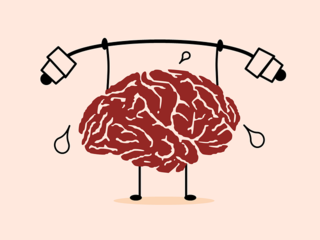By Sarah Gingell Ph.D.
New research shows why physical exercise is essential to mental health
In fact, increasingly robust evidence suggests that exercise is not only necessary for the maintenance of good mental health, but can be used to treat even chronic mental illness. For example, it is now clear that exercise reduces the likelihood of depression, and also maintains mental health as we age. On the treatment side, exercise appears to be as good as existing pharmacological interventions across a range of conditions, such as mild to moderate depression, dementia, anxiety, or reducing cognitive issues in schizophrenia.
But how?
Put simply: Exercise directly affects the brain. Regular exercise increases the volume of certain brain regions—in part through better blood supply that improves neuronal health by improving the delivery of oxygen and nutrients; and through an increase in neuro-trophic factors and neuro-hormones that support neuron signalling, growth and connections.
Of critical importance for mental health is the hippocampus—an area of the brain involved in memory, emotion regulation and learning. Studies in other animals show convincingly that exercise leads to the creation of new hippocampal neurons (neurogenesis), with preliminary evidence suggesting this is also true in humans.

Evidence is accumulating that many mental health conditions are associated with reduced neurogenesis in the hippocampus. The evidence is particularly strong for depression. Interestingly, many anti-depressants—that were once thought to work through their effects on the serotonin system—are now known to increase neurogenesis in the hippocampus.
What does this all mean? Theories suggest that new-born hippocampal neurons are likely to be particularly important for storing new memories, and for keeping old and new memories separate and distinct. Thus neurogenesis allows a healthy level of flexibility in the use of existing memories, and in the flexible processing of new information.
Much mental ill health is characterized by a cognitive inflexibility that keeps us repeating unhelpful behaviours, restricts our ability to process or even acknowledge new information, and reduces our ability to use what we already know to see new solutions or to change. It is therefore plausible that exercise leads to better mental health in general, through its effects on systems that increase the capacity for mental flexibility.
“OK, ok: I’m in… How much exercise?”
Madhukar Trivedi, a psychiatrist, has shown that three or more sessions per week of aerobic exercise or resistance training, for 45 to 60 minutes per session, can help treat even chronic depression. Effects tend to be noticed after about four weeks (which incidentally is how long neurogenesis takes), and training should be continued for 10-12 weeks for the greatest anti-depressant effect.
With today’s trend for ‘10 seconds to a new you’-type articles, this may seem like a lot of exercise, but no worthwhile mental health fix comes for free. Exercise levels below these recommended amounts are still beneficial, and of course the side effects (weight loss, increased energy, better skin, improved physical health, etc.) are pretty palatable!
The brain actually has a neat trick to get us back on track. As outlined by Psychology Today blogger Christopher Bergland, even small improvements in exercise levels or diet create a positive upward spiral that increase the sensitivity of the dopamine receptors that signal reward, so that exercise will eventually become rewarding, even it that seems unimaginable at the outset!
What do you think?
Could exercise replace medication for chronic mental health conditions?
Will these findings make it more likely you’ll try to prioritize exercise for the sake of mental well-being?
Psychology Today © 2018 Sussex Publishers, LLC
